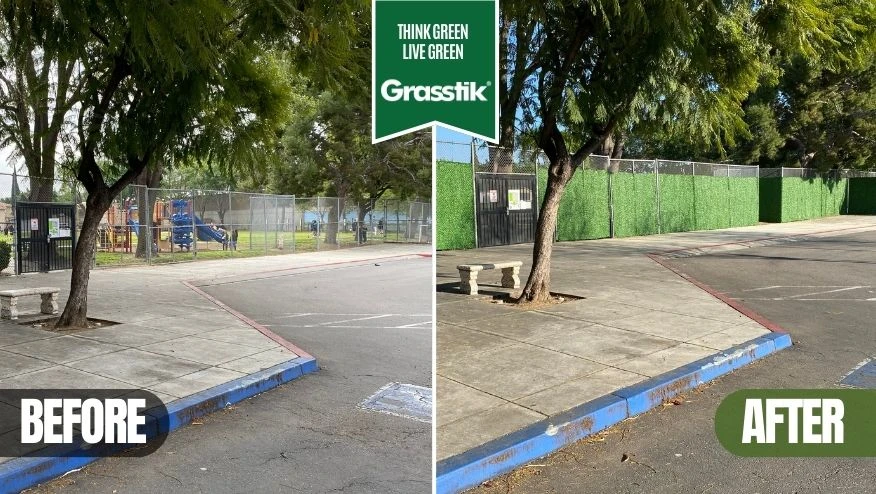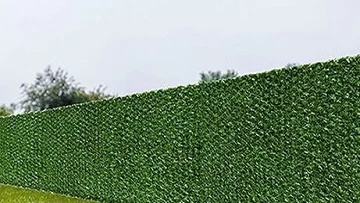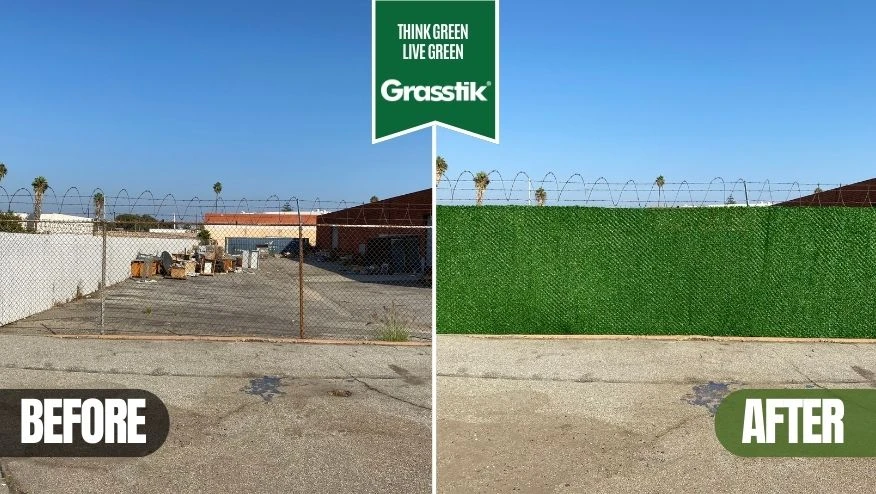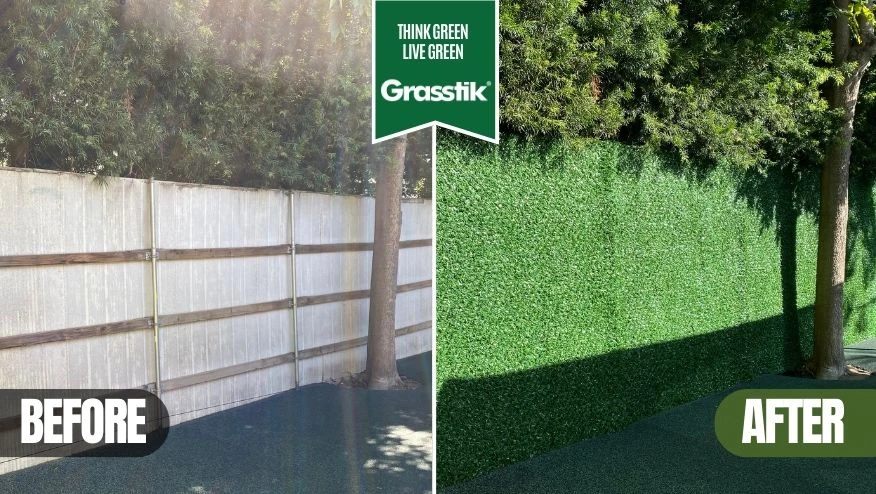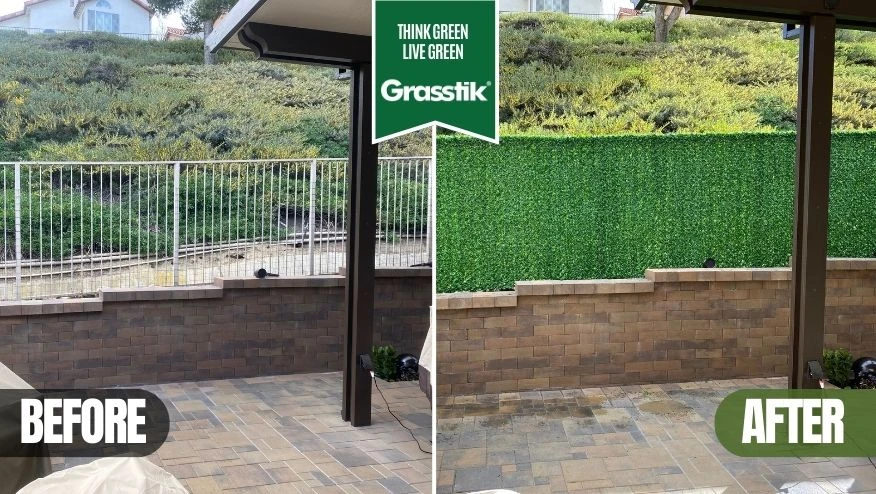
Fencing around a garden not only enhances its beauty but also adds a layer of garden grass fence. When considering installing fences for garden, it's important to assess the specific needs of your space, whether it's for aesthetic appeal, privacy, or protection against animals. The choice of material, design, and the extent of coverage are critical factors that can transform the look and functionality of your garden.
Do You Need a Fence Around a Garden
Deciding on the best fence for a garden depends largely on the garden's location, size, and the gardener's objectives. A fence can serve multiple purposes: it can protect the garden from pests, provide privacy from neighbors, and enhance the overall appearance of your outdoor space. Before installation, consider the garden's needs and the maintenance required to keep the fence in good condition over time.
How Deep to Bury Garden Fence
The depth at which a garden fencing border should be buried is crucial for the stability and durability of the fence. Regulations and rules often dictate this depth, generally suggesting that at least one-third of the fence post should be underground to ensure stability against wind and weather conditions. Checking local building codes can provide specific guidelines to follow.
How Far Apart Should Garden Fence Posts Be
The spacing between fence panels for garden and grass fence panels is essential for both the structural integrity and the aesthetic of the fence. Generally, fence posts should be spaced 6 to 8 feet apart, depending on the type of fence and the materials used. This spacing ensures that the fence is strong enough to withstand environmental pressures while maintaining its appearance.
How High Can A Garden Fence Be
Determining the optimal garden fence height is a crucial decision that balances aesthetic preferences, functional needs, and adherence to local zoning regulations. The average garden fence height typically falls within the range of 4 to 6 feet. This variance accommodates different purposes, such as ensuring privacy, deterring animals, or simply demarcating property boundaries. For homeowners seeking garden privacy fence solutions, the choice often leans towards the higher end of this spectrum to create a secluded oasis away from prying eyes. Conversely, fences intended primarily for decorative purposes or to keep out small animals might skew towards the shorter end. It's important to consult local zoning laws and homeowners’ association guidelines, as these can significantly influence permissible fence heights and potentially require permits before installation.
How High Can A Back Yard Fence Be
When considering the best height for garden fence in the backyard, homeowners typically prioritize privacy and security. Backyard fences, therefore, tend to be taller, ranging from 6 to 8 feet. This height range is ideal for creating a private retreat for outdoor activities away from the outside world. Such privacy fence panels not only enhance the sense of seclusion but also add an extra layer of security by deterring unauthorized entry and reducing the visibility of valuable outdoor belongings. The choice of height should also take into account the topography of the land and neighboring properties to ensure that the fence fulfills its intended purpose without infringing on local regulations or neighborly goodwill.
How High Can A Front Yard Fence Be
In contrast to backyard fencing, the fence height for garden areas in the front yard is generally lower, with recommendations typically around 3 to 4 feet. This reduced height helps maintain a welcoming appearance for the home's entrance, ensuring that the fence adds to the curb appeal rather than creating a fortress-like barrier. Front yard fences often serve more as decorative elements or markers of property lines rather than for privacy or security. However, even with these aesthetic considerations, it's crucial to adhere to local zoning laws that may dictate maximum allowable heights and styles for front yard fences, ensuring that your fence enhances the neighborhood's overall character while meeting your personal needs and preferences.
What to Consider for Garden Fencing?
When embarking on the journey of installing garden fencing, several key factors come into play to ensure the project's success. An increasingly popular approach is to blend the practicality of a grass fence with the aesthetic appeal of an artificial grass wall. This innovative combination not only enhances the garden's visual appeal but also provides a robust solution for maintaining privacy and creating a tranquil outdoor environment.
The choice of a privacy fence is crucial for those looking to create a secluded retreat in their backyard. It serves the dual purpose of deterring prying eyes and securing the property against unwanted intrusions. Meanwhile, incorporating an artificial grass wall can elevate the garden's ambiance, introducing a lush, green backdrop that remains vibrant throughout the year with minimal upkeep. This synergy of elements caters to homeowners seeking a low-maintenance garden that doesn't sacrifice beauty for functionality.
In planning your garden fencing, consider the following aspects to achieve the best results:
- Durability and Maintenance: Opt for materials that offer longevity and require minimal maintenance to keep your garden looking its best with little effort.
- Aesthetic Compatibility: Ensure that the fence design and artificial grass complement the overall landscape and architectural style of your home, creating a cohesive look.
- Privacy and Security: Balance the need for privacy with the desire for an attractive garden space. The height and design of the fence should provide adequate privacy without making the space feel closed off.
- Environmental Considerations: Choose eco-friendly materials when possible and consider the impact of your fencing choices on the local ecosystem, particularly if you're incorporating living elements into your design.
How to Extend Garden Fence Height?
Extending the height of a garden fence is a common consideration for homeowners seeking increased privacy or a refreshed look for their garden. However, before proceeding with this modification, it's imperative to understand and comply with local regulations regarding garden fence legal height. Many municipalities have specific codes that dictate the maximum height allowed for garden fences, both in the front and backyards, to ensure safety, preserve sightlines, and maintain neighborhood aesthetics.
To extend your garden fence height legally and effectively, follow these steps:
- Research Local Regulations: Contact your local building department or consult the municipal code to determine the permissible fence heights and any restrictions or requirements for modifications.
- Consider Neighborly Etiquette: If your plans involve significantly altering the fence height, it's courteous to discuss these changes with adjacent neighbors to prevent any concerns or disputes.
- Choose the Right Materials: When extending the height, select materials that match or complement your existing fence to ensure structural integrity and aesthetic coherence. This might involve adding additional panels, lattice work, or even integrating an artificial grass wall for a seamless extension.
- Professional Assessment: Consider consulting with a fencing professional or a landscaper to evaluate the feasibility of your extension plans, especially to ensure that the existing fence structure can support the additional height without compromising safety or stability.
By carefully planning and adhering to local guidelines, extending your garden fence height can enhance your outdoor living space's privacy, security, and aesthetic appeal, making your garden a more enjoyable and secluded sanctuary.
In conclusion, installing a fence around your garden is a significant enhancement that can serve various purposes, from providing privacy and security to adding a decorative touch to your outdoor space. Careful planning, understanding local regulations, and choosing the right materials are key to ensuring that your garden fence meets your needs and complies with any legal requirements.

